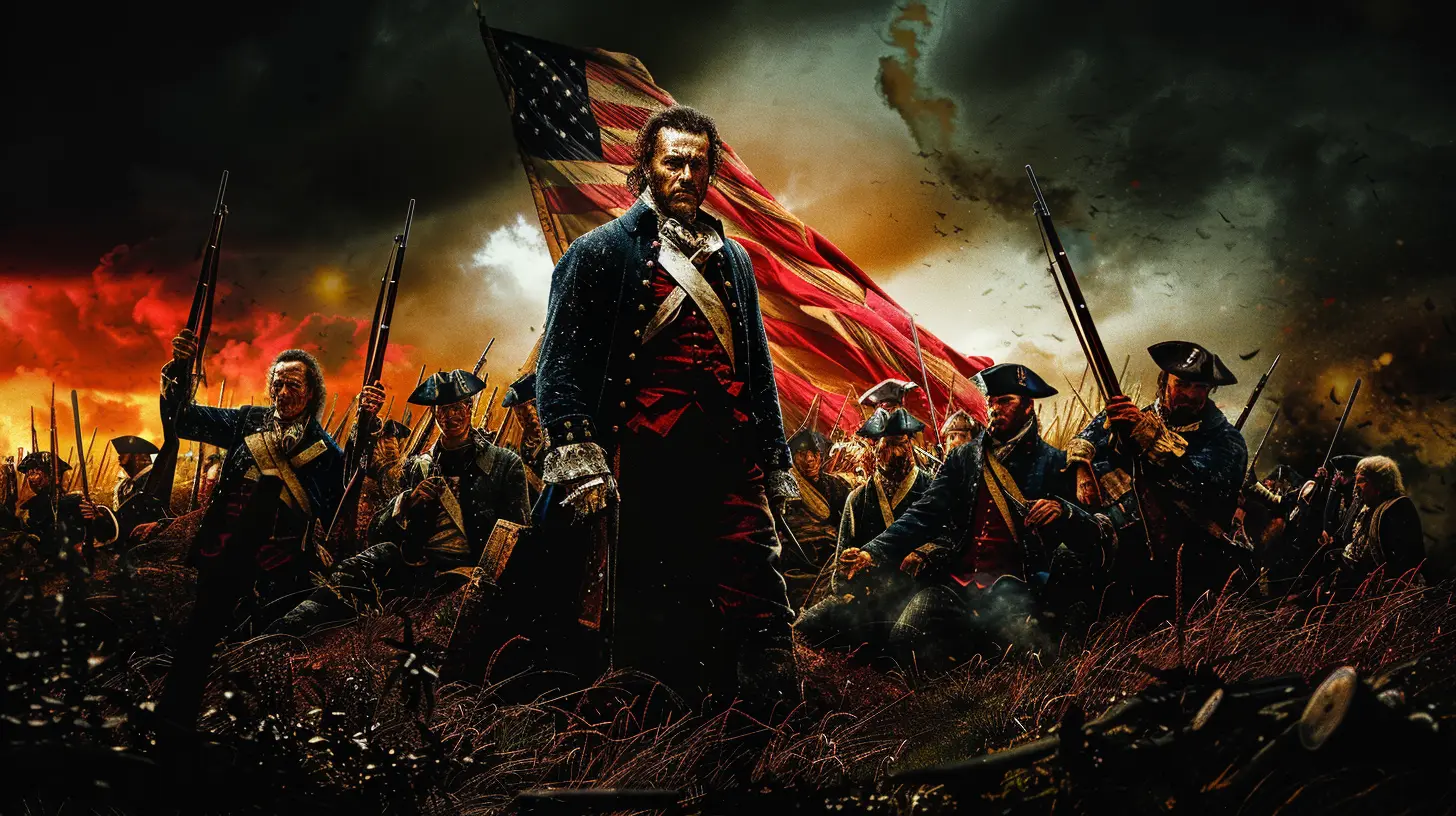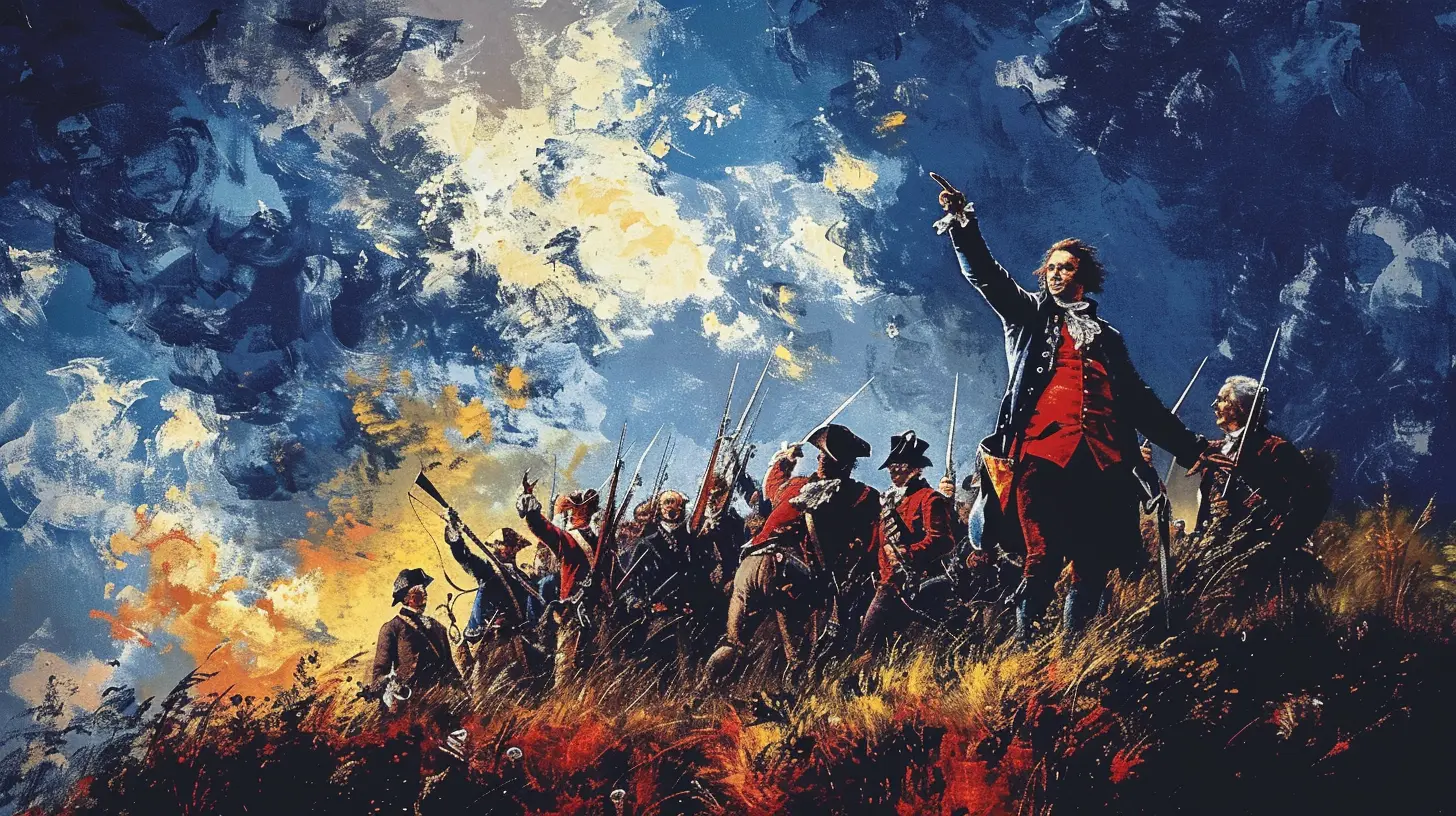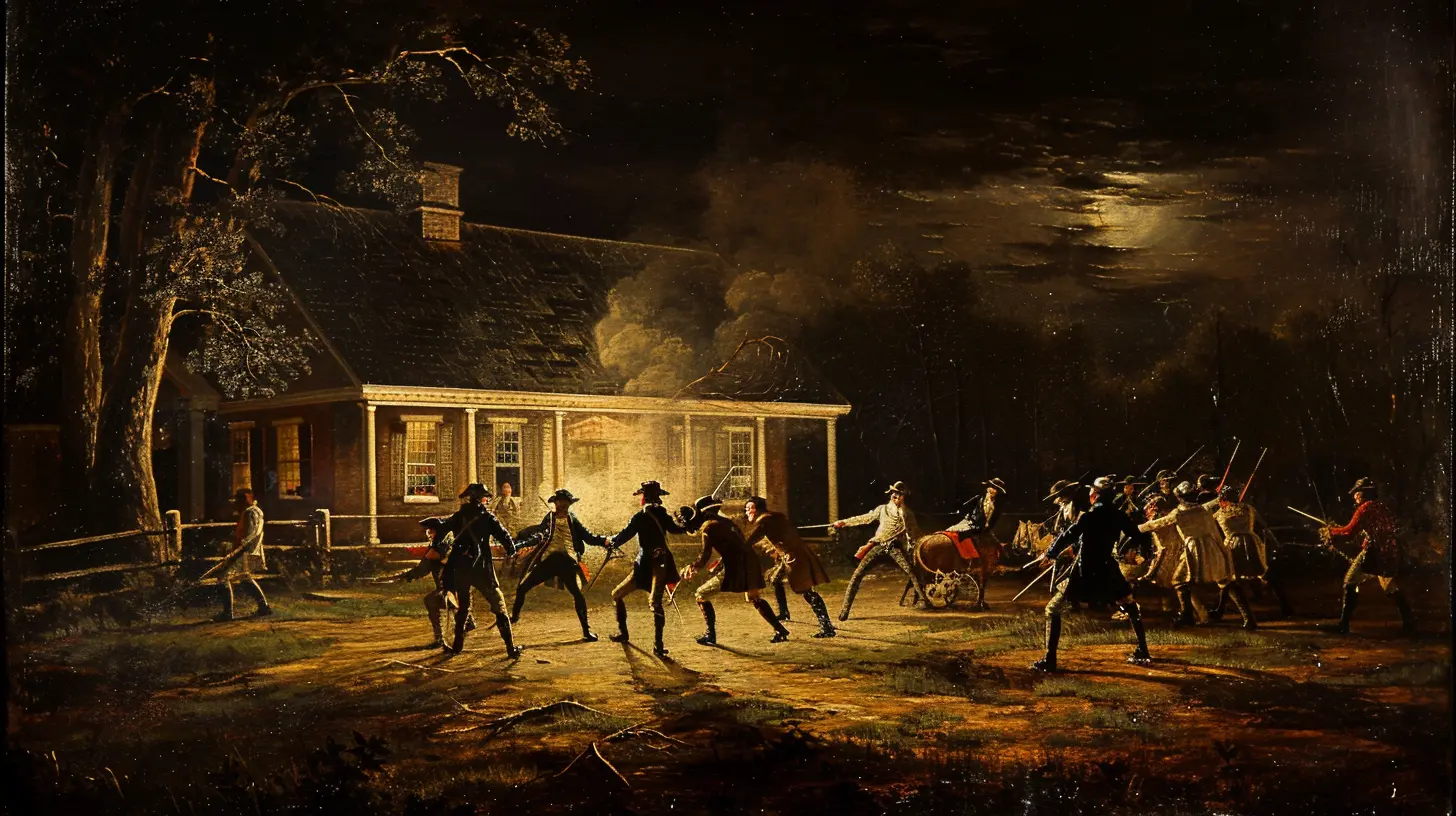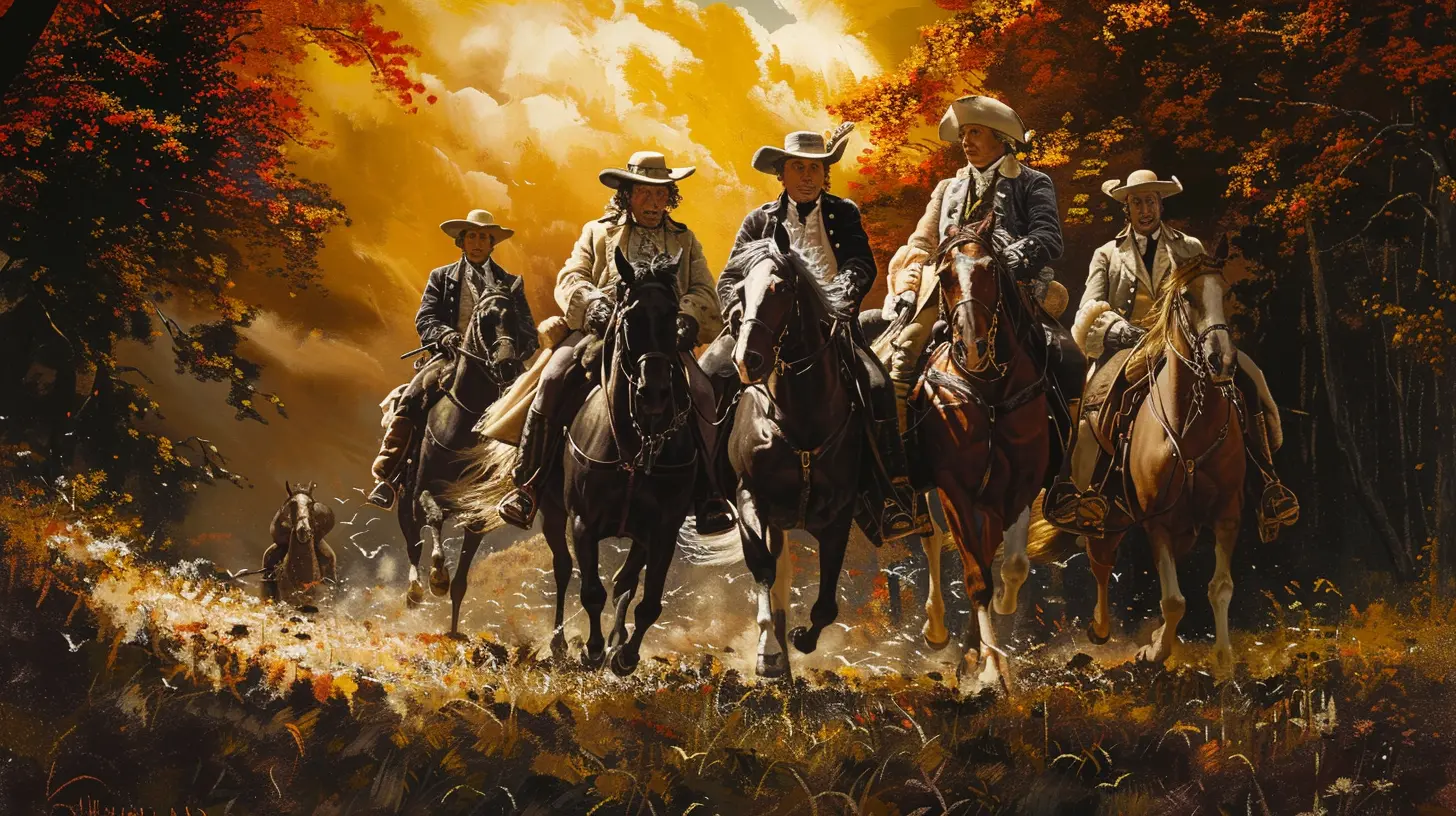Decoding the Causes of the American Revolution
23 November 2025
Have you ever wondered what actually made the colonists so angry that they decided to break away from the world's most powerful empire? I mean, we’re talking about risking everything—lives, land, and loyalties—to start something totally new. The American Revolution didn’t just pop out of nowhere. Nope. It was a slow-burning fire fueled by a bunch of political drama, economic tensions, and deep-rooted ideas about freedom and rights.
Let’s dive in and decode the real causes of the American Revolution. By the end of this, you'll seriously feel like you were right there with the patriots, plotting rebellion over a tankard of ale.
The British Empire and Its Thirst for Control
Alright, let’s set the stage. It’s the mid-1700s. The British Empire is riding high after defeating the French in the Seven Years’ War (called the French and Indian War in the colonies). Victory sounds great, right? Sure—except wars are hella expensive. Britain needed cash, and fast.So, where do they look for money?
You guessed it: the American colonies.The British government figured, “Hey, we protected you from the French. You should help pay off the bill.” And just like that, the colonial grip on self-rule started slipping.
Taxes, Taxes, and More Taxes
Let’s be real—nobody likes taxes. But for the colonists, this wasn’t just about money—it was about principle.The Stamp Act of 1765
Imagine having to pay extra for every newspaper, legal document, or even a deck of cards. That’s what the Stamp Act demanded. The British slapped a tax on all paper goods, and colonists were furious. Not just because of the cost, but because they didn’t have a say in it.“No taxation without representation!”
This became the rallying cry. Colonists didn’t want to be taxed by a Parliament across the ocean where they had zero representation. Can you blame them?
The Townshend Acts (1767)
Think of these as add-ons to the already boiling frustration. These laws taxed everyday items like tea, glass, and paint. The worst part? British troops were sent to enforce them. It felt like the Empire was breathing down the colonists’ necks, and tensions were rising—fast.
Boston: The Epicenter of Rebellion
If the American Revolution had a “troublemaker HQ,” it’d be Boston.The Boston Massacre (1770)
Picture it: a cold March evening, colonists are shouting at British soldiers, snowballs with rocks fly through the air, and suddenly—BANG! Five colonists are dead.This wasn’t just a street scuffle. It was the perfect propaganda tool. Paul Revere’s engraving of the event painted the British as bloodthirsty killers. The British called it self-defense. But the damage was done—mistrust was now sky-high.
The Boston Tea Party (1773)
You’ve heard of this one, right? Colonists dressed like Mohawk Indians, boarded British ships, and tossed 342 chests of tea into the harbor. Why? Because of the Tea Act. It wasn’t even about the cost (tea was actually cheaper under the Act), but about being told who they could buy it from.This bold move screamed: “We won’t be pushed around!”
Enter the Intolerable Acts
When someone wrecks your property, what do you do? Well, Britain responded to the Tea Party with full-on punishment. They passed the Coercive Acts (aka the Intolerable Acts). Here’s what they did:- Closed Boston Harbor until the dumped tea was paid for.
- Gave British officials immunity from colonial courts.
- Forced colonists to house British soldiers (yes, even in private homes!).
It was like grounding an entire city for bad behavior. And guess what? It didn’t shut the colonists up. It united them.
Ideas That Lit the Revolutionary Spark
Here’s something we don’t talk about enough: revolutions aren’t just about guns and battles. They start in the mind.Enlightenment Philosophy
Philosophers like John Locke were dropping truth bombs that really resonated. Locke believed in natural rights—life, liberty, and property. And that if a government doesn’t protect those rights, people have the right to overthrow it.Sounds kind of familiar, right?
These ideas were making waves in colonial newspapers, taverns, and town halls. Colonists started believing they weren’t just British subjects—they were individuals with rights worth defending.
Colonial Unity and the First Continental Congress
By 1774, the colonies realized they couldn’t just keep complaining. They needed to act.The First Continental Congress
Delegates from 12 of the 13 colonies met in Philadelphia. Their mission? Figure out how to respond to Britain’s overreach.They didn’t call for independence just yet. Instead, they agreed to:
- Boycott British goods.
- Train militias.
- Meet again if things didn’t improve.
Spoiler alert: things did not improve.
Lexington and Concord: The Spark That Started the War
Now, here’s where things go from political to bloody.In April 1775, British troops marched to Concord to seize colonial weapons. On the way, they clashed with colonial minutemen in Lexington. No one knows who fired the first shot, but by the end, 8 colonists were dead.
This became known as "the shot heard 'round the world."
The revolution had officially begun.
Economic Pressures and Trade Restrictions
Let's step back from the battles for a second and talk money. Because economics played a huge role.Mercantilism and Colonial Frustration
Britain operated on a system called mercantilism, where colonies existed to benefit the mother country.Sound fair? Not really.
Colonists weren’t allowed to manufacture their own goods or trade freely with other countries. They had to send raw materials to Britain, buy back finished products, and deal with lopsided trade rules.
It was like being stuck in a one-sided relationship where you give everything and get very little in return.
The Rise of Colonial Identity
Something else was happening under the surface. Over generations, colonists had developed their own customs, laws, and ways of life. They didn’t feel British anymore.Consider this: someone born and raised in Virginia in the 1740s had never even been to England. Their world was America. The more Britain tried to tighten control, the more colonists felt like they weren’t part of the same team.
They started seeing themselves as something different—something new.
Religion and Revolutionary Thought
Yep, even faith played a role.Many colonists, especially in New England, were influenced by Protestant beliefs that emphasized individual conscience and resistance to tyranny. Preachers gave fiery sermons linking British oppression to Biblical stories about deliverance and justice.
It added a moral backbone to the political cause. The Revolution wasn’t just a fight for independence—it was a divine mission.
Pamphlets and Powerful Words
Sometimes, words are mightier than muskets.Thomas Paine’s "Common Sense"
This tiny pamphlet was a game-changer. Published in January 1776, it argued plainly that:- It’s ridiculous for an island (Britain) to rule a continent (America).
- Monarchies are outdated and dangerous.
- America should be independent.
Paine didn’t use fancy language. He wrote so every colonist could understand. And they did—half a million copies were sold in a population of just a few million.
Talk about going viral.
All Roads Lead to Independence
By the summer of 1776, the tide had fully turned.The Declaration of Independence
On July 4th, Congress approved the iconic document declaring the colonies free from British rule. Written primarily by Thomas Jefferson, the Declaration laid out the many grievances against King George III and made a bold statement: “All men are created equal.”There was no turning back now.
Wrapping It All Up
So, what truly caused the American Revolution?It wasn’t just about tea or taxes. It was a whole cocktail of political, economic, and ideological frustrations. Colonists were tired of being treated like second-class citizens in a system that didn’t represent them.
They wanted control over their own lives, their own laws, and their own future.
In the end, the Revolution was about something deeply human: the longing to be heard, valued, and free.
And guess what? That fire still burns in people today, wherever they fight for liberty.
all images in this post were generated using AI tools
Category:
History LessonsAuthor:

Olivia Chapman
Discussion
rate this article
1 comments
Megan Williams
This article offers a clear and insightful analysis of the complex causes behind the American Revolution. Your ability to break down historical events into digestible parts is commendable! It encourages deeper understanding and sparks curiosity. Great job illuminating such an important chapter in history! Keep up the excellent work!
November 23, 2025 at 12:58 PM

Olivia Chapman
Thank you for your kind words! I'm glad you found the analysis helpful and engaging. Your feedback means a lot!


